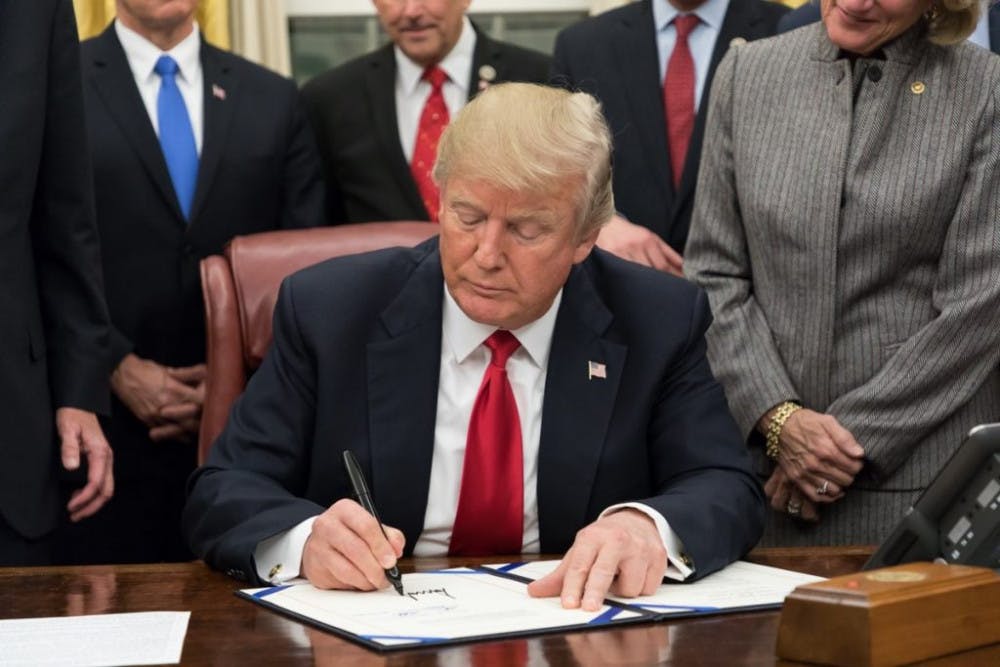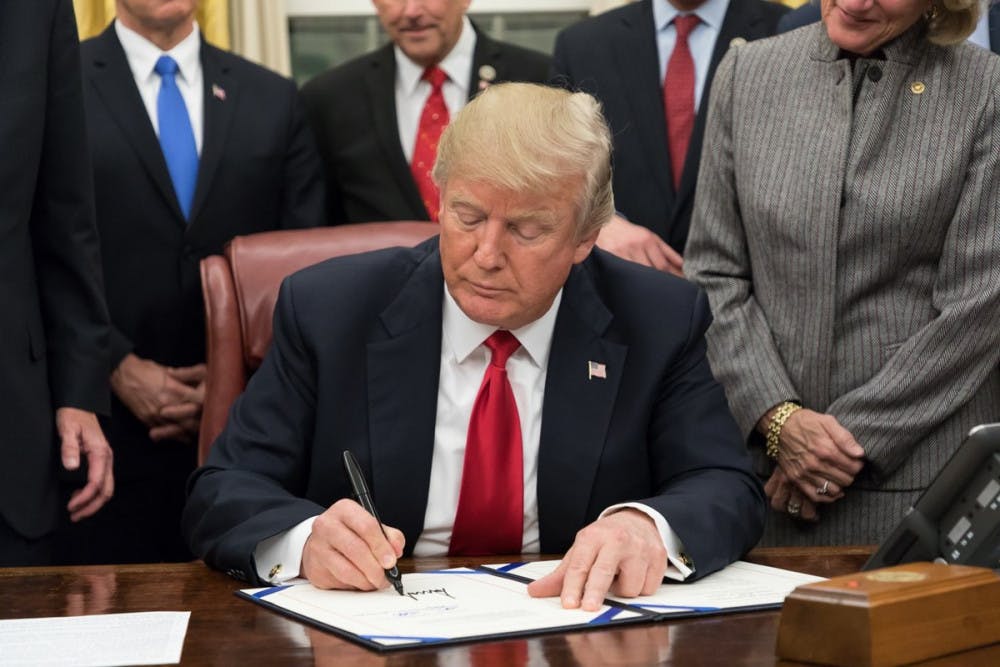On March 21, President Donald Trump signed an executive order to defend “free inquiry” on college campuses.
President Trump called the move “historic action” to protect American values. Many see this executive order as a response to events such as the University of California, Berkeley’s cancellation of far-right speaker Milo Yiannopoulos two years ago.

When Yiannopoulos’ speaking engagement was cancelled due to forceful protests by students, President Trump tweeted, “If U.C. Berkeley does not allow free speech and practices violence on innocent people with a different point of view — NO FEDERAL FUNDS?” Some believe that the executive order will prevent what happened at Berkley in the future.
Since then, Yiannopoulos has spoken at UC Berkeley in 2017 at an event which was protested. And he is not the only one facing protests.
According to The Washington Post, students who hold more conservative politics are feeling threatened in today’s America; they feel that their right to free speech is not being defended by their universities. This executive order may give them the courage to be more outspoken and feel as though their speech is protected.
The executive order reads, “[t]he purpose of this order is to enhance the quality of postsecondary education by making it more affordable, more transparent, and more accountable.”
It goes on to express that institutions of higher education need to be held “accountable” for “student outcomes and for student life on campus.”
“Regarding free speech, it’s also not entirely clear how this is going to shake out because thus far, there really aren’t details on enforcement. What constitutes a violation of free speech? What types of speech are protected?
How would anyone monitor free speech violations?” Richard Blissett, an assistant professor in the Department of Education Leadership, Management and Policy, said via email.
Blissett elaborated, “In my view, as of right now, this part of the order has been mostly culturally symbolic.”
President Trump’s executive order says that it “seeks to promote free and open debate” at colleges and universities. It describes free speech and free inquiry as being an “essential” component of democracy.
The Federal government will “ensure institutions that receive Federal research or education grants” are following the order’s guidelines regarding free inquiry.
Freedom of inquiry is not the only policy enacted by this executive order, however. A large section focuses on financial aid and data reporting requirements.
The Federal government hopes to improve “transparency and accountability” on college and university campuses. One way they are doing this in the executive order is by enacting new rules about financial aid and data reporting for colleges and universities. But the order may be less effective that it seems to be on the surface.
Robert Kelchen, a Seton Hall Assistant Professor in the Department of Education Leadership, Management and Policy said via email, “At this point, it is unclear what will actually come from this executive order that wasn’t already going to happen.”
Blissett agrees. “Seton Hall, like most institutions, already does a ton of data reporting for federal data collections,” Blissett said. “You can already get, from the College Scorecard, much of the information specified in the order.”
“The big question is if there is more information specified in the executive order than is already in the data that is collected and reported.”
Kelchen explained that the “U.S. Department of Education is already moving toward providing program-level data on student outcomes (such as debt burdens and post-college earnings), and other changes probably need the approval of Congress.”
Kelchen went on to say that “[t]he program-level outcome data will come from the U.S. Department of Education and not colleges. And colleges have little ability to shape how students receive federal financial aid. As a result, the policies haven’t been implemented at Seton Hall.”
The executive order will effectively do very little according to Kelchen.
“Students will benefit on getting data on how well people in their major at their college do, which is generally not available at private colleges,” Kelchen said. “Otherwise, these changes really won’t affect Seton Hall.”
Marie Leone can be reached at marie.leone@student.shu.edu.





